Buying a house can be an exhilarating experience – whether it’s your starter home or you’re leveling up. However, navigating the path of real estate transactions can be daunting, and confusing. Although it’s technically possible for you to go it alone and shop for houses without agent representation, having a professional on your side can save you time, money, and stress.
Why Do I Need a Real Estate Agent to Buy a House?
 Real estate agents attend extensive training and obtain continuing education to master real estate law. The biggest asset of a buyer’s real estate agent is their ability to protect the buyer’s interests legally.
Real estate agents attend extensive training and obtain continuing education to master real estate law. The biggest asset of a buyer’s real estate agent is their ability to protect the buyer’s interests legally.
In addition to legal knowledge, real estate agents are experts at locating properties and communicating with sellers and sellers’ agents to secure the best deal possible for the buyer.
An agent can find houses that match your criteria that are within your budget, simplifying your search. Furthermore, while touring properties, your real estate agent can advise you on areas that may be of concern with the structure of the property, zoning issues, nearby schools, transportation, and other area resources in the communities in which you view houses.
An agent can consult with you on the amount of the offer you submit along with contingencies, and can also help you submit an offer, handling all of the paperwork for you, and then negotiate terms in the event of the buyer receives more than one offer. This can be particularly handy in the case of a bidding war.
The Difference Between a Buyer’s and Seller’s Agent
Not all real estate agents are equal. Some agents represent buyers, while other agents represent sellers. When you’re buying a house, it’s best to seek out a buyer’s agent.
A seller’s agent represents the seller. The seller agreed to a commission rate for his or her agent, from which the seller pays a finder’s fee to the buyer’s agent. Because the seller’s agent pays the buyer’s agent, that means you don’t have to. There are exceptions, though. FSBO properties do not have a seller’s agent to pay the commission, so the buyer interested in FSBO homes must compensate the buyer’s agent.
Likewise, with new construction communities, the seller’s agent works specifically for the builder. Going it on your own with new construction means you work solely with the agent whose looking out for the builder’s best interest, not yours. The builder’s agents do not offer finder’s fees to buyer’s agents, so this is another scenario where the buyer must compensate the agent.
How do I Find a Real Estate Agent to Buy a House?
The best place to begin the search for any service-provider is by asking your friends, family members, neighbors, co-workers, and associates who they’d recommend. Word of mouth advertising is often the best because people tend to be brutally honest about the services they’ve received.
When possible, avoid working with family and friends as personal interests and business often conflict and could damage valuable relationships.
Social media networks make it super simple to check out ratings and reviews. Scope out the ratings, read the reviews, and narrow your list down by eliminating those who didn’t receive good feedback.
Narrow your list down again by selecting only the agents who represent the type of home for which you’re searching. Real estate agents specialize in various niche markets such as waterfront properties, luxury homes, condominium lifestyles, and more. Only work with an agent who is an expert in the type of property you’d like to buy.
Another resource for finding real estate agents is by attending local homebuyer workshops at your community real estate businesses or mortgage companies.
You can also reduce your list once more by selecting only the agents who are familiar with the areas you’re considering for your next neighborhood.
Finally, check with your state’s licensing board for real estate agents to verify the agents are legally able to conduct business in your area.
When you’ve refined your list as much as possible, the next step is to set up interviews with potential real estate agents.
What Questions Should I ask a Real Estate Agent?
 You have the right to interview real estate agents, so you know you’re choosing the best agent for you. Here are some useful questions to ask potential real estate agents during your interview process:
You have the right to interview real estate agents, so you know you’re choosing the best agent for you. Here are some useful questions to ask potential real estate agents during your interview process:
- Can you provide me with client referrals? (And follow up!)
- Have you earned any special awards or certifications?
- How long have you lived and practiced real estate in my area?
- Do you work alone or as part of a team?
- What is the exit strategy in case this professional relationship doesn’t work out?
- What is your schedule?
- What is your preferred method of communication?
- How often can I expect to hear from you?
- How soon do you typically respond to messages?
- How often will you send me listings?
What Should I Expect When It Comes to Communicating?
Communication is essential in any relationship, including the professional relationship you form with your real estate agent.
It’s important that you make your expectations clear in the beginning, and that you clarify your agent’s communication preferences. You could find yourself terribly frustrated when you’ve got urgent questions or concerns and your agent just won’t call you back. Are you expecting the agent to pick you up at your location and drive you to showings, or will you meet the agent there? These may seem like small issues, but they can create big problems down the road.
On that same token, make sure you’re clear about your agent’s expectations, too. Be on time for your appointments, practice positive open house protocol, and only communicate with your agent, never directly with the seller or seller’s agent.
What Happens During the Open House?
An open house is when a seller’s real estate agent hosts open showings at a house for sale. The agent usually provides a sign-in sheet, business cards, and marketing information pertaining to the property. You may also be pleasantly surprised to find freshly baked cookies or other treats on display as a courtesy to welcome you to the home.
When you’re working with a buyer’s agent, it’s best to attend open houses with your agent and let your agent do the talking. However, if your agent isn’t able to attend, take his or her business cards with you. When the seller’s agent approaches to connect with you about the property, hand them your agent’s card and tell them you’ve got representation. Reserve your questions, providing them to your agent who will gladly follow up. You may sign the sign-in sheet and provide what information you’re comfortable sharing, and then politely and quietly tour the space.
Some house-hunters feel comfortable openly stating their opinions about features of homes they tour. It’s not uncommon for buyers to comment about ugly carpet, tacky paint colors, or other opinions as they browse potential homes. You never know, though, when an owner might be home and within earshot. You could risk having your offer rejected before it’s ever submitted if you offend the seller.
Keep in mind that many open houses take place in residences that are still occupied, including by pets. Most agents recommend homeowners make out-of-the-house arrangements for the pets during showings, but this isn’t always the case. Talk with your real estate agent if you have pet allergies or other concerns before entering someone’s home.
How Does a Real Estate Agent Help with Negotiating My Offer?
There’s a lot more involved in negotiating a real estate offer than price. In fact, the price is not always the deciding factor for the seller. When multiple offers come in for a single property, there are a dozen or more various topics for negotiation that do consist of price, but also closing date, closing costs, repairs, appliances, and more.
Buyers who are moving out of one house to purchase another may include a contingency that their current residence must sell in order for the contract to be valid.
Additionally, some buyers or sellers may require expedited or extended timelines. In these cases, a leaseback stipulation can be implemented wherein the buyer will lease the property back to the seller for a specified amount of time to allow for the seller to vacate the premises.
Not all funding is equal, either, and may require additional negotiations, such as VA or FHA loans.
Closing costs are another item up for negotiation in the real estate contract. Generally, the buyer pays closing costs since they’re assuming responsibility for the property. However, it’s commonplace for buyers to request that the seller pay closing costs. A compromise is also common wherein each party pays a portion of the closing costs.
Closing costs include both an appraisal and an inspection, among other things. Even after the price, financing, and closing dates have been agreed upon, in addition to closing costs, there can still be room for negotiations following the appraisal and inspection, depending on what’s found.
When problems are discovered during an appraisal or inspection, the buyer can request the seller to make all necessary repairs before closing or include an allowance for repairs, which alters the selling price of the property.
When buyers tour a home, they often fall in love with appliances, furniture, or personal belongings. Personal belongings are not included in the sale of the house unless otherwise specified in writing in the contract. When a buyer requests that appliances or other items be included with the sale, the real estate agent can negotiate an additional cost for those items to be included with the purchase.
You might also be interested in a home warranty, which your agent can ask for in your offer and negotiation process.
Condominiums are a popular form of a home purchase that may require additional negotiating. In multi-family residences, the common areas, amenities, and condition of the building are all outside of the control of the seller. The seller is only able to list their unit. However, if the building and or amenities are lacking, the buyer, with his or her agent’s help, may request a lower price to compensate for the property’s shortcomings.
Your real estate agent will help you look for houses that match your criteria and your budget, has your best interest in mind when considering properties, will help you submit an offer, negotiate terms, and can guide you through the intricate processes and details of the transaction. When you’re fully satisfied with your agent’s services, remember to return to their social network pages to leave them a 5-star review.
Your real estate agent is the best source of information about the local community and real estate topics. Give Jackie Ruden Realty Team a call today at 435-272-7710 to learn more about local areas, discuss selling a house, or tour available homes for sale.





